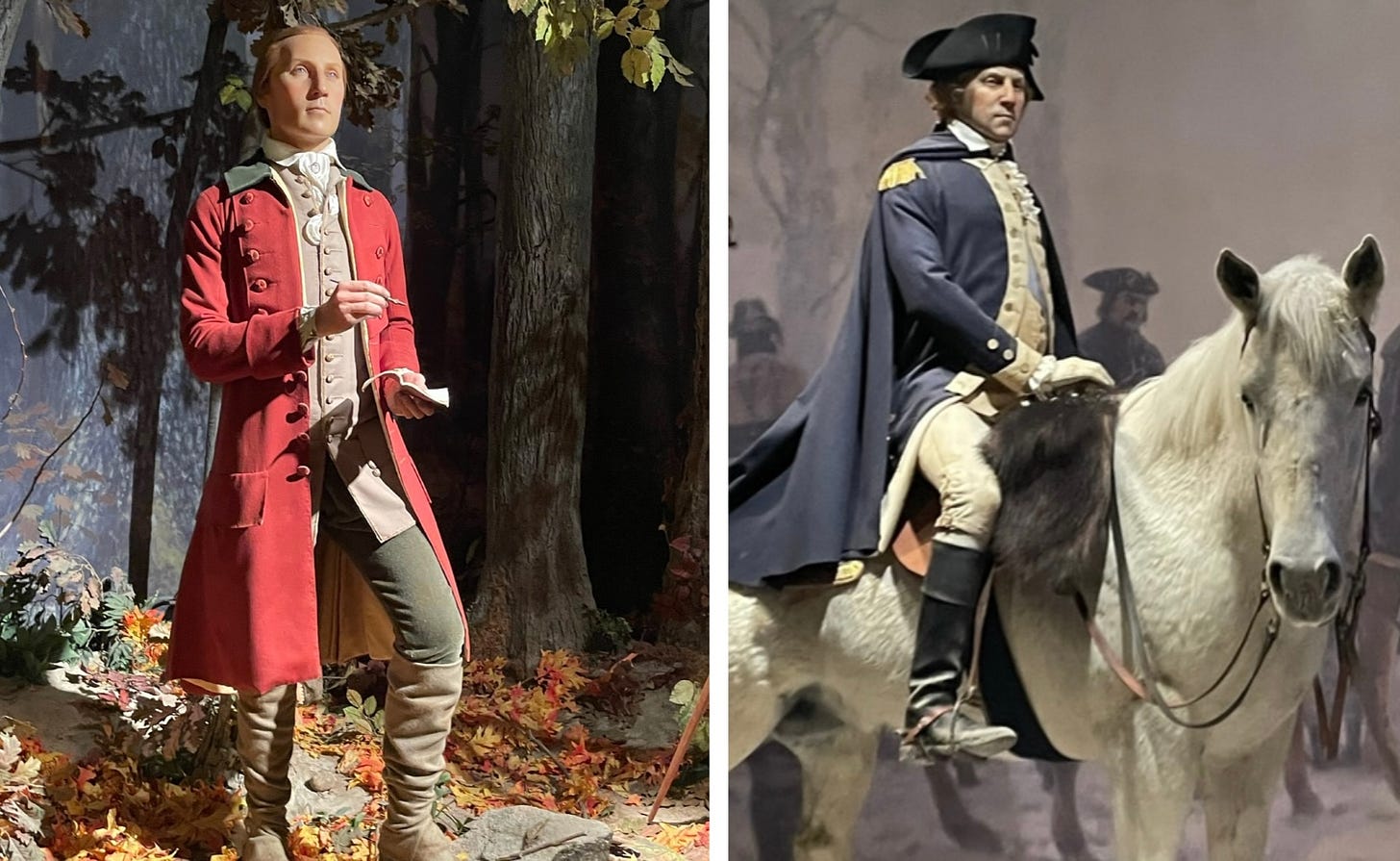“Liberty, when it begins to take root, is a plant of rapid growth.” —Washington
“Of all the dispositions and habits which lead to political prosperity, religion and morality are indispensable supports.” —Washington
“Truth will ultimately prevail where there is pains to bring it to light.” —Washington

Today, Feb. 22, is the anniversary of the birthday of the greatest American, the Father of our Country, George Washington.
Washington was born on his family’s Popes Creek estate in Virginia on what (in the reformed calendar) was Feb. 22, 1732, to planter Augustine Washington and his second wife, Mary Ball. George, an active, clever, and very honest young boy, had very little formal education. His father died while he was still young and the family went through a period of poverty, during which Washington even recalled not always having enough to eat.
Despite his strong-minded mother’s desire to keep him home, adventurous George became a surveyor and then a soldier, gaining fame and honor with his exploits during the French and Indian War. But later, even as Washington happily lived with his wife Martha and her children at his beloved Mount Vernon estate (he was an excellent farmer and businessman), a prominent and well-respected figure in local Virginia politics and society, he began to recognize how dangerous and authoritarian were many of the actions of the British imperial government.
George Washington became the Commander-in-Chief of the Revolutionary Army. He led his rag-tag army through the defeats and trials of 1775 and 1776, engineered their stunning victories, inspired them when they were almost in despair, and put down their rebellions. He took a group of farmers and shopkeepers and “ne’er-do-wells” and made them a successful fighting force, he helped turn them into the heroes who won the Revolution. Without Washington, the Revolution would have failed early on. Without Washington to pull them through the hard, hungry times as well as the hopeful times, the army would have fallen apart. Every Revolutionary soldier was an admirable freedom fighter, but George Washington was the indispensable man. He took on the world’s most powerful empire and defeated it.
His fellow countrymen knew he had done what no one else could do, and so he was appointed to head the Constitutional Convention. And when he had helped craft the U.S. Constitution, he was unanimously elected to be the first U.S. President, once again to do what no man had done before, to set the precedent for all future presidents. “The Constitution is the guide which I never will abandon,” he said. Yet just as he did when he was military Commander-in-Chief, Washington voluntarily surrendered his power. He could have been a king or dictator, but he chose to give back his authority twice after honorable service and return to Mount Vernon and the wife and family he loved so well. He sadly had no children of his own, but he and Martha raised her children and grandchildren, and George’s affection for them was strong. He was never happier than when at Mount Vernon.
While modern leftists like to paint Washington as a racist, in some ways he was far ahead of many rich white Southern Americans of his time. He warmly praised the poetry of former slave Phillis Wheatley and is said to have kept several important individuals waiting when he met and talked with her. Washington’s Revolutionary army was racially integrated, and two of his favorite regiments—the Marbleheaders and the “Immortals”—were racially diverse. Washington’s correspondence shows an affection for his slave and long-time constant companion William “Billy” Lee, to whom Washington granted wishes even when he didn’t like the requests (Lee was freed by Washington’s will). Washington dedicated his life to ensuring freedom and equality for Americans, and he certainly did not exclude non-white Americans from those privileges. Not only that, Washington was free of the religious prejudices of some of his fellow Protestant Americans, as he had a great respect for Catholicism and Judaism.
Washington, of course, was not perfect; no man is but Jesus. George had his faults, his failures, and his regrets like anyone else, but he displayed an extraordinary wisdom to allow him to see what was good and right even when others didn’t, and to learn from his mistakes. There were many Founders who condemned slavery, but Washington was the slave-owner who actually acted upon it, going to great lengths to keep slave families together and then ensuring his slaves’ freedom and education in his will. He did make some mistaken decisions as president (like the Fugitive Slave Act), but overall he consistently tried to ensure the prosperity and liberty of America and her people. “I wish from my soul that the legislature of this state [Virginia] could see the policy of a gradual abolition of slavery,” Washington passionately wrote Lawrence Lewis in 1797. It takes a special kind of greatness not only to recognize when one has done wrong but actively to try and reverse the wrong.
And so today we honor a great and good man, one of the most remarkable and admirable figures of history. Without George Washington, there would be no United States of America, and we can truly say of him as Henry Lee said, that he was “First in war, first in peace, and first in the hearts of his countrymen.”



